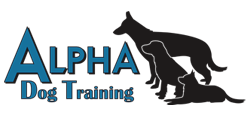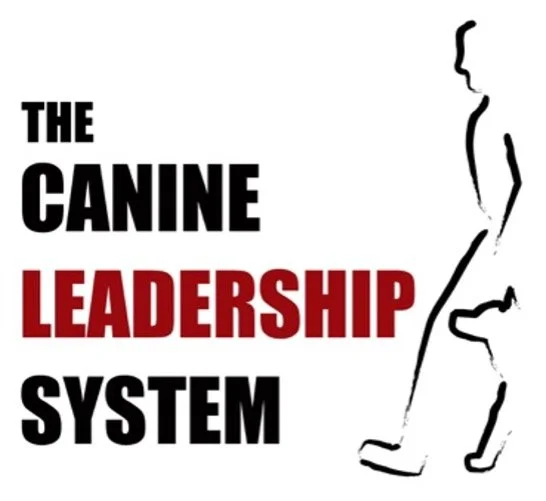Training Method
Obedience exercises
We use obedience exercises to teach our dogs language for communication through tonal contrast and contrasting corrections to create positive listening and learning outcomes.
Obedience exercises also help us to identify and work through points of resistance in a controlled and safe situation. Essentially, we are teaching our dogs to listen to us and do what we ask; even when they don’t want to!
Manners & Canine Good Behaviour Shaping
We use manners and canine good behaviour shaping to build a strong relationship between you and your dog where you are the leader. This puts you in control of the daily interactions between you and your dog.
The dog will learn to think for themselves as we continue to shape their behaviour and give them guidance
Behavioural problem solving
Once reliable obedience and manners have been established; we are in a position to start tackling your dog’s behavioural problems
Common problem behaviours we tackle include: Lack of manners, over excitability, jumping up, nuisance barking, stealing & destroying possessions, aggression, fearfulness and generally not listening to owners.
A practical reward based training method that does not rely on food rewards! We are teaching your dog to listen to YOU and work for YOU!
Summary
Fundamentals of the Method
The pattern Learning Training Method
Reinforcement Contrast Effect
Canine Cognitive Tonal Conditioning
Reset Learning
Precedent of Learning
Sit. Good Dog. Free.
-
Sit. Good Dog. Free. -
Training Method in Detail
Canine Communication System
The Alpha Dog Training Canine Communication System takes into account all the facets that can affect the acquisition of skills and overall understanding needed to have a safe, happy and responsive dog in our society. Our training system is based on the development of simple, common sense training methods and ideals that any dog owner can use to improve their relationship with their dog. The obedience training and problem-solving methods within the system are ultimately just a means to this end. The purpose of obedience training is building language for communication, and is based on a having a better understanding of our dogs and their needs within the home environment. The core benefit of using this communication system is having a well-trained dog, but as a result of this; things we haven’t specifically trained for will also come naturally to the dog.
Our individual training system is aimed at helping you to learn more about your own dog, and dogs in general. The actual training skills that you and your dog learn should be viewed as a new language that is used to develop a bond and understanding that extends beyond the obedience exercises themselves.
Obedience Exercises
A domestic dog is still very much a 'pack' animal and needs to develop the social skills and manners needed to fit into today's society. The obedience skills learned at training can be seen as taking the place of the complex communication system in normal dog to dog interactions. We use obedience commands to help our dogs learn the human/dog 'pack' rules and to develop a relationship based on understanding and respect. Using your obedience skills to constantly interact with your dog is creating an environment where the communication should be both practical and consistent, making the co-existence within your family unit a very natural and comfortable situation for both people and dogs.
Distractions are also a core component of our training method; where handlers are taught to recognise their own dog's individual needs when it comes to being confronted with various distractions. Understanding how your dog will respond to its obedience commands under distraction is valuable knowledge that can prevent bad experiences in real life situations. If you know what stresses or excites your dog, you can take appropriate action to turn the situation into a positive learning experience, rather than just another uncontrollable incident that adds to the dog's problem or nervous behaviour. Working under distraction is crucial element to our training method as an obedient dog is one that is willing to work through distraction whilst under your immediate/physical control and is also responsive when it's not under your immediate control (Off lead).
Random Training Principles
The 'Lifestyle' part of our system name refers to the fact that all obedience training should be aimed at educating dog owners on how best to help their beloved pets assimilate into their individual family unit ('pack'). You will notice that virtually all the training in your obedience classes is done on an individual basis even though you are working within a group environment. With the development of the Random Formation, Random Command, Random Release and Random Practice principles, we have created a training environment that teaches each handler to recognise their own dog's individual needs. This gives each handler the freedom to work their own dog in a manner that will be relevant within the training centre, but more importantly; at home, work or anywhere else the dog accompanies them.
One of the ideals that formed the foundation of all our training development was: "The way you train is the way you react". It made perfect sense to us that if you could work individually with your dog during classes, the understanding and recognition of the dogs needs and abilities would easily transfer across to any situation in which the dog was present, at home or elsewhere. In effect, the system is designed to suit the individual rather than the other way around. Rather than march everyone around doing all the same exercises at the same time, in unrealistic straight line formations that amount to no more than just following the leader, the Random Training principles allow handlers to find their own space and incorporate relevant variations appropriate to their dog's individual needs.
If you are having problems with your dog at home or elsewhere, the class structures allow you to seek advice from your trainers on how best to apply the skills learned at training to real life situations. Along with this application of skills also comes an understanding of your own dog's likely response to given situations and perhaps a broader understanding of how other dogs are likely to react when in similar situations. Random Training creates an environment where the different situations are endless and require you to understand and work with your dog in the same way that you would in real life situations. In comparison, rigid formations are totally unrealistic in relation to how you interact with your dog in the home environment.
Canine Good Behaviour Shaping (Manners)
The development of Canine Good Behaviour Shaping and its introduction into Alpha Dog Training has brought our problem-solving abilities to a whole new level. The proven techniques work right before your eyes and help owners to read and reinforce their dog’s behaviours in a manner and language that is totally consistent across the obedience training and behavioural modification concepts at Alpha. The focus of the training has shifted from the obedience exercises and on to general behaviour shaping that is relevant to all interactions with your dogs.
Behavioural Problem Solving
There is a lot more to solving undesirable canine behaviours than just addressing the perceived problem at hand. Owners are taught how Alpha's obedience training method is actually a major part of the solution process and how leadership, or lack of it, is the actual cause of their dog's problems. Again, we can prove this easily and once explained and demonstrated it becomes quite clear that there is a very different way to view canine behavioural problems.
With this in mind, canine behavioural modification is also linked into the training process at Alpha and the skills required by owners to communicate and lead their dogs in non-obedience situations are all factored into the fundamentals of the training method. Whilst you learn to train your dog in obedience, you are actually developing some vital communication skills that are central to all our behavioural modification techniques and strategies.

